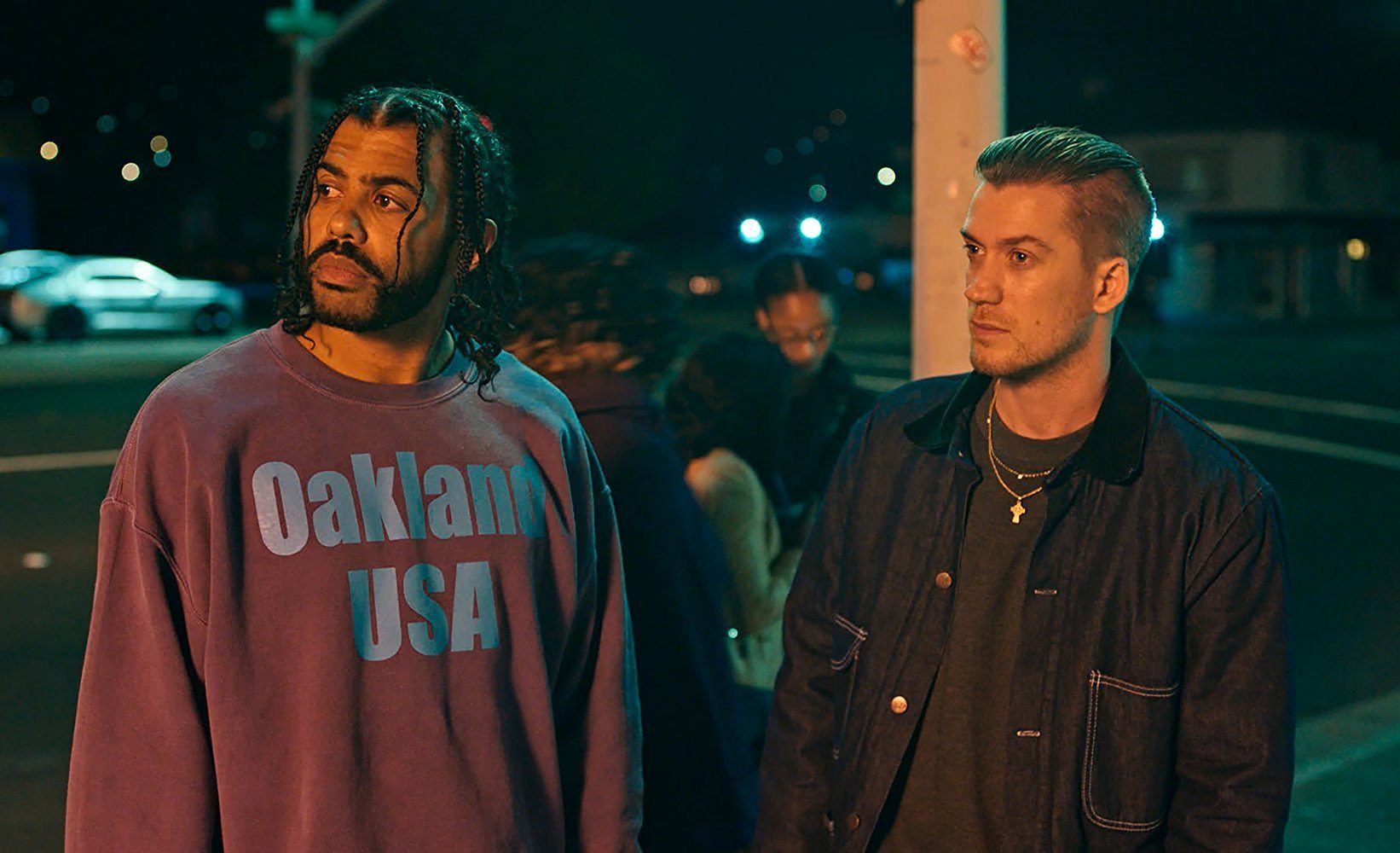
‘Blindspotting’ blindsides audiences with Oscar-worthy performances and a vital narrative for our times
Written by: Kristen Lopez, Editor in Chief
Some movies hit you were you live, and in the last month there have been two films to spotlight the growing gentrification and class/racial divide in a city just two hours from me. Boots Riley’s Sorry to Bother You and Carlos Lopez Estrada’s Blindspotting are both features attempting to look at the changing world of Oakland, California in very different ways. Where Riley’s feature was a surrealistic, hyper-exaggerated look at a world where people live to work and corporate America’s mask as our new saviors is merely a facade, Blindspotting is a lyrical, subtly biting examination of how Oakland’s problem isn’t just with corporations, but a growing need to modernize and what that means to one “rooted in Oakland.” Led by two Oscar-worthy performances by leads Daveed Diggs and Rafael Casal, Blindspotting cements its placement as the best movie of the year.
Collin (Diggs) is fresh out of prison and returning to his home in Oakland. A convicted felon in a city where police brutality runs rampant leaves Collin with more than one reason to get through the final three days of his probation, trouble-free. The problem lies with his best friend, Miles (Casal), a hothead who can’t help but get Collin into trouble. When Collin witnesses a cop murder an unarmed black man, the struggle of how to handle that leads to Collin confronting everything in his life and his city.
Blindspotting is a mix of hip-hop opera, social commentary, and psychological analysis. Rubin’s vase, the psychological test wherein people see a vase or two faces but never the same at once acts as a mascot for the entire movie, navigating two different things while compelling the audience to look at how both feed and fuel the other. In this case, Collin is looking for a fresh start but can’t find one. He’s “a convicted felon till proven otherwise,” and much of what happens lies in the “otherwise.”
As well as starring in the feature, Casal and Diggs wrote the script and much of what happens in the film’s breathless 95-minutes presents a poignant commentary on our times. Telling us things we didn’t know and stuff we always did. With Collin already aware that of his past, he attempts to bridge two worlds – the one where he’s a black man in Oakland and the other where he’s a black man trying to go straight in Oakland. His ex girlfriend, Val (Janina Gavankar) mentions how his hair makes him look “blameable” and with the cards already stacked against him the movie seeks to explore whether there’s any way to transcend preconceived notions. How does one subvert blame if their very existence comes with that already perceived within?
For a film with such an esoteric plot the script is filled with humor that often pokes fun at the increasing changes happening within the city itself. The opening credits situate a world of differing tastes, both economic and racial, from a split-screen showing a Whole Foods and a liquor store, to the different dances done by white hipsters and black residents. The audience meets Collin and Miles as they’re sitting outside eating at a local burger joint called Kwikway; “it’s quick and it’s around the way.” Miles is ready to throw down because meat is only available upon request while Collins attempts to mediate and keep both of them out of trouble. The scene, like many within Blindspotting, serves a dual purpose of showing these characters living within the world, and how said world is changing around them (and, by extension, changing them).
Daveed Diggs is best known to fans of Hamilton as the fast-talking Lafayette and as Collin he does get the opportunity to spit out lyrics in a method similar to his work on-stage. But for Collin rapping is a way to express himself when his spoken dialogue and actions fail him. This all leads to a searing confrontation at the end, told almost entirely in rapped verse that’s intense, beautifully eloquent, and connects with the audience on a level that most musicals fail to achieve. Diggs is complemented by Rafael Casal as the aggressive Miles. Both actors are adept at throwing out the rapid-fire that vacillates between humorous and serious, but Casal is the one who makes “everything sound pretty.” His attempt to sell a boat to a man is a litany of flashy verbiage that sails right over the audiences’ head (and the man interested in the boat), but it’s coming from a man with, seemingly, all the confidence in the world.
The film takes the time to delve into the differing views of privilege each man brings to the table. Where Collin is part of the neighborhood because he’s black, the connotations of being a black man in Oakland put his life in danger. Conversely, Miles is desperate to be accepted in a world that, up until now, has been predominately African-American. Having been friends since childhood this issue between them has simmered for years, just waiting for the right moment for the two to confront it. A scene of the two debating the nature of privilege is one of the film’s most evocative sequences, with the two speaking words that have probably never been said between the two, but always felt.
Blindspotting is a film audiences will be deconstructing for years to come. It’s a film that wears its contemporary bent on its sleeve while simultaneously bemoaning how being contemporary has robbed the city of Oakland of its diversity. The film tackles so many questions in a skillful way that’s fresh and compelling. Diggs and Casal better be in the Oscar conversation, if they aren’t already. Seriously, best movie of the year!

